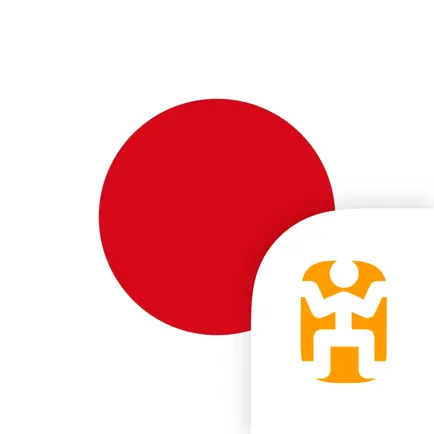
Japanese Language Guide & Audio - World Nomads Взлом 3.0 + Чит Коды
Разработчик: WorldNomads.com
Категория: Путешествия
Цена: Бесплатно
Версия: 3.0
ID: com.WorldNomads.JapanesePhraseApp
Скриншоты



Описание
Ever been traveling and wish you knew how to flirt with the locals or at least pretend to the scammers you have been to the country before? Get the World Nomad’s Japanese language guide now!
Road tested by Worldnomads: we know this language guide will you navigate a country like a half decent amateur: you get a conversational language lesson with a local, plus over 240 basic phrases to help keep you travelling safely.
Go on, download it now!
If you liked this free Japanese App (MSNBC just rated our Language Guide Series the #1 freebie iPhone language apps), then this is the next step for those wanting a bit more.
Road tested by Worldnomads: we know this language guide will you navigate a country like a half decent amateur: you get a conversational language lesson with a local, plus over 240 basic phrases to help keep you travelling safely.
Go on, download it now!
If you liked this free Japanese App (MSNBC just rated our Language Guide Series the #1 freebie iPhone language apps), then this is the next step for those wanting a bit more.
История обновлений
3.0
2017-02-17
This app has been updated by Apple to display the Apple Watch app icon.
We've bought the app into the 21st Century and fixed the bugs. Enjoy!
We've bought the app into the 21st Century and fixed the bugs. Enjoy!
2.5
2013-08-29
Bug fixes.
2.4
2013-01-24
Support for iOS 6.
2.3
2012-04-25
Minor bug fixes.
2.2
2012-04-01
Minor bug fixes.
Fixes an issue with < iOS 4.
Fixes an issue with < iOS 4.
2.0
2011-12-07
* Streamlined tab interface
* Real-time traveler sourced Q&A about Japan
* Real-time traveler sourced Q&A about Japan
1.1
2009-12-18
* More phrases
* Longer language lesson
* Enhanced audio controls
* Stylish black interface
* Longer language lesson
* Enhanced audio controls
* Stylish black interface
1.0
2008-11-21
Способы взлома Japanese Language Guide & Audio - World Nomads
- Промо коды и коды погашений (Получить коды)
Скачать взломанный APK файл
Скачать Japanese Language Guide & Audio - World Nomads MOD APK
Запросить взлом
Рейтинг
3 из 5
1 Голосов
Отзывы
filachan,
WN Japanese: Phrases in romaji and kanji/kana are messed
I do not recommend this app, because for many phrases, romaji does not fit the phrase in kanji/kana at all! In most cases, the romaji version is the shortest and the most simple one, but not always (e.g., no - kekko des - いいえ).
I don't know what the authors' intention was, but that's just weird and makes no sense.
I don't know what the authors' intention was, but that's just weird and makes no sense.





